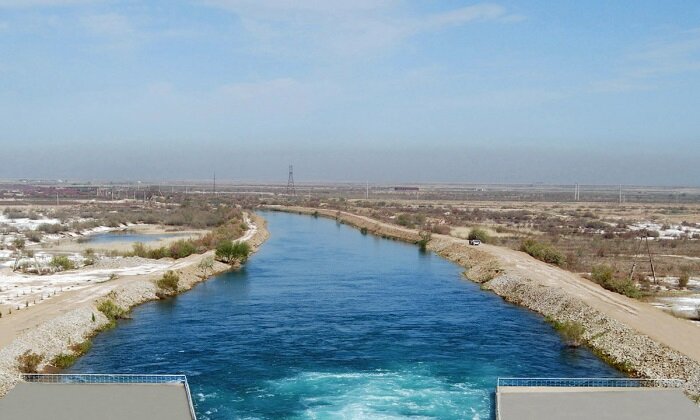 The Astana International Financial Centre operates in Kazakhstan. This organisation can be called unique in the vastness of Central Asia. This is neither a bank, nor a fund, an exchange or a platform. Probably, not everyone in Kazakhstan understands what the Astana IFC is, what opportunities and benefits it provides for the financial and economic partnerships of Kazakhstan with other states.
The Astana International Financial Centre operates in Kazakhstan. This organisation can be called unique in the vastness of Central Asia. This is neither a bank, nor a fund, an exchange or a platform. Probably, not everyone in Kazakhstan understands what the Astana IFC is, what opportunities and benefits it provides for the financial and economic partnerships of Kazakhstan with other states.
A political scientist Zamir Karazhanov gave an extensive interview on the Astana International Financial Centre to the CentralAsia.news editorial staff. Our readers will get a clear idea of the large-scale project implemented by the authorities of the Republic.
- Zamir, let’s start from the beginning. Who and for what purpose made the decision to establish the Centre?
- The AIFC was created on the initiative of the first President of Kazakhstan Nursultan Nazarbayev. The decision was taken in 2015. In the same year, the Constitutional Law of the Republic of Kazakhstan On the Astana International Financial Centre was approved. It states that the AIFC shall be a major international centre for financial services. Simply put, to “catch up” with Singapore, Hong Kong or Dubai. Moreover, the financial hub is to attract investments in Kazakh economy and foster the development of the domestic capital market and financial sector. For this purpose, a stock exchange was set up at the AIFC – the Astana International Exchange (AIX).
 - It turns out that we are talking about the status of the financial centre in Central Asia.
- It turns out that we are talking about the status of the financial centre in Central Asia.
- The main idea behind the creation of the AIFC was to turn Kazakhstan into a large financial hub, offering a wide range of all-inclusive services, as well as create a modern infrastructure capable of attracting foreign investors. In general, the AIFC was supposed to contribute to the further development of Kazakhstan’s financial sector. Most likely, several tasks were pursued at one time.
First of all, a strong financial centre gives access to the global capital market, which will allow Kazakhstan to achieve greater independence and self-consistency and strengthen its financial and economic security. Moreover, Kazakhstan expects to take a leading position in the region and become a ‘magnet’ for investors from Central Asia.
Another task is an IPO (initial public offering, ed.) of national companies. The development of the capital market in Kazakhstan has been talked about since the late 1990s, when it was proposed to sell blue chip stocks. Since then, the terminology has changed. At first, it was about the “people’s IPO” – the ability of the population to earn money on the shares of national companies, but today they are simply talking about an IPO. The fact remains: the plans to turn national companies into public ones are moving forward slowly. It is believed that the public nature of the activities of national companies will increase their efficiency and be able to attract investment.
Other aspects of the Astana International Financial Centre include green finance, which will facilitate the transition to a green economy and reduce greenhouse gas emissions. This envisages the trade in green papers and the shares of companies that operate in accordance with environmental requirements and green energy development.
- What exactly could the Centre be of interest to foreign business circles?
A feature of the IFC is the application of English law. It is believed to better protect the rights of investors and build trust in the AIFC. However, English law is like a double-edged sword. On the one hand, this can attract investors; on the other hand, it is not a panacea for all problems.
 - Do you mean the complexity of the relationship between English law and national law?
- Do you mean the complexity of the relationship between English law and national law?
For example, the Shanghai Stock Exchange ranks third in the world in terms of market capitalization. However, we all understand that English law on the territory of the PRC is the same utopia as Tommaso Campanella’s City of the Sun. The country has its own legislation, which suits investors, including foreign ones. Certainly, investors trust the authorities of the PRC, but the main thing is its large market and dynamic GDP growth, which means greater opportunities.
- Then what is the use of English law in the work of the Centre?
The fact is that companies can resolve controversial issues in accordance with English law in London, Singapore, Dubai and other world financial centres. In the post-Soviet space, it became possible for the first time in the capital of Kazakhstan. AIFC Manager Kairat Kelimbetov said citizens of Russia and Kazakhstani have legal proceedings in London most often, after British citizens. Moreover, each such proceeding generates income for the arbitration. The main thing is that the activities of the AIFC are not limited to litigation.
In addition to the interest in English law, the AIFC is looking closely to “Islamic finance”. In general, this direction is promising, if we are speaking about the investment opportunities of Islamic countries. Kazakhstan has concluded agreements on Islamic banking development with some of them. However, the Arab world has its own investment funds, which themselves decide where and what assets to acquire abroad.






